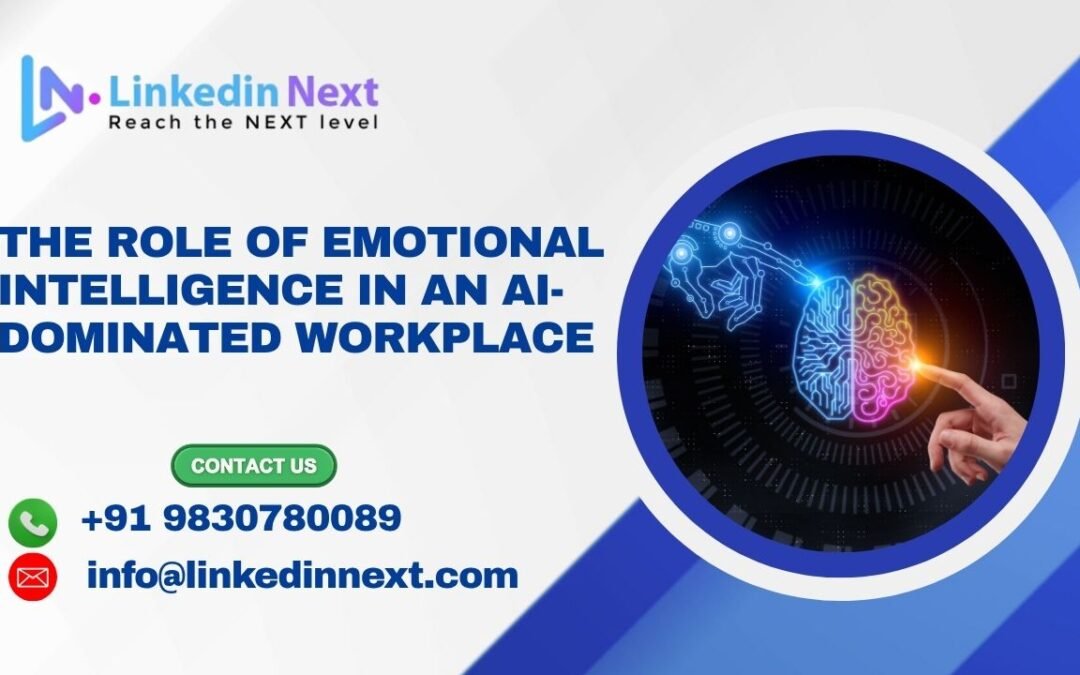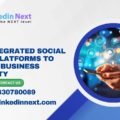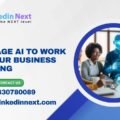The Role of Emotional Intelligence in an AI-Dominated Workplace
The Role of Emotional Intelligence in an AI-Dominated Workplace. As we advance further into 2025, the workplace landscape is being reshaped by Artificial Intelligence (AI), automation, and intelligent systems. Machines now handle repetitive tasks, analyze massive datasets, and even assist in decision-making. However, amidst this technological revolution, one uniquely human skill continues to hold unmatched value: Emotional Intelligence (EI).
In an AI-dominated workplace, empathy, self-awareness, and social skills are no longer optional—they are essential for career growth, leadership, and organizational success.
Understanding Emotional Intelligence
Emotional intelligence is the ability to recognize, understand, and manage our own emotions, while also navigating the emotions of others. It encompasses five key components:
-
Self-awareness – Understanding one’s emotions, strengths, and weaknesses.
-
Self-regulation – Managing impulses, stress, and adapting to changing environments.
-
Motivation – Sustaining drive and resilience in the face of challenges.
-
Empathy – Recognizing and understanding the feelings of colleagues and clients.
-
Social skills – Building relationships, resolving conflicts, and fostering collaboration.
While AI can process data, detect patterns, and even simulate conversation, it cannot replicate the depth of human emotion, intuition, or interpersonal understanding. This makes EI a critical differentiator in AI-driven organizations.
Why Emotional Intelligence Matters More Than Ever
1. Complementing AI Capabilities
AI excels at speed, accuracy, and efficiency but lacks human empathy and judgment. Employees with high EI can interpret AI-generated insights and apply them in a human-centric way, ensuring that decisions benefit people as well as processes.
Example: While AI can recommend an organizational restructuring plan based on data, a manager with high EI understands how the change will affect employee morale, engagement, and productivity.
2. Enhancing Collaboration in Hybrid Teams
The rise of remote work and AI-assisted collaboration has created distributed teams that rely heavily on digital communication. Without face-to-face interactions, emotional cues are often missed, leading to miscommunication and disengagement.
Workers with strong EI can navigate these challenges, building trust and cohesion across virtual environments. They can read subtle emotional signals, mediate conflicts, and foster a sense of belonging—roles that AI cannot perform authentically.
3. Driving Leadership Effectiveness
Leadership in an AI-dominated workplace is no longer about micromanaging tasks. It’s about guiding, motivating, and inspiring teams. Leaders with high EI can:
-
Anticipate team needs and address concerns proactively.
-
Encourage creativity and innovation while balancing data-driven insights.
-
Create psychologically safe environments where employees feel valued and heard.
AI can provide reports, dashboards, and analytics, but true leadership requires human empathy and vision.
4. Supporting Mental Health and Well-Being
The integration of AI can lead to increased workload pressures, monitoring, and expectation for constant availability. Emotional intelligence enables professionals to recognize signs of stress in themselves and others, and to implement strategies for mental well-being.
Empathetic managers can foster environments that balance productivity with wellness, ensuring that AI-driven workplaces remain sustainable and human-centric.
5. Facilitating Change Management
AI introduces rapid technological change, from automation to new digital tools. Resistance to change is natural, and this is where EI becomes invaluable. Employees and leaders with strong emotional intelligence can:
-
Navigate uncertainty with resilience.
-
Communicate changes effectively with clarity and empathy.
-
Inspire adoption of new AI tools rather than creating fear or resistance.
Key takeaway: Emotional intelligence makes technological transitions smoother and more effective.
Integrating Emotional Intelligence in AI Workplaces
Organizations that thrive in 2025 are embedding EI into their culture, policies, and training. Here’s how:
-
Leadership Development Programs – Training leaders to balance AI insights with empathy-driven decision-making.
-
Employee Wellness Initiatives – Promoting mental health awareness and emotional literacy.
-
AI-Human Collaboration Frameworks – Encouraging employees to use AI tools while applying human judgment.
-
Conflict Resolution Systems – Equipping teams to navigate interpersonal challenges in hybrid and digital environments.
By integrating EI into organizational DNA, companies create high-performing, resilient, and adaptable workplaces that AI alone cannot achieve.
The Future of Work: Humans and AI in Harmony
AI will continue to transform the workplace, automating routine tasks and providing unprecedented analytical capabilities. However, the human element—emotional intelligence—will remain irreplaceable.
Professionals who cultivate self-awareness, empathy, and social skills will:
-
Excel in leadership and collaborative roles.
-
Navigate AI-driven changes with confidence.
-
Create work environments that are innovative, ethical, and emotionally intelligent.
In 2025 and beyond, emotional intelligence is the ultimate competitive advantage. It is the skill that ensures technology enhances human potential rather than replacing it.
Also read our more BLOG here.
Thank you for read our blog “The Role of Emotional Intelligence in an AI-Dominated Workplace”.
I hope this blog is helpful to you, if you have any question feel free contact us at
Call/WhatsApp: +91.9830780089 || Email: info@linkedinnext.com







Recent Comments